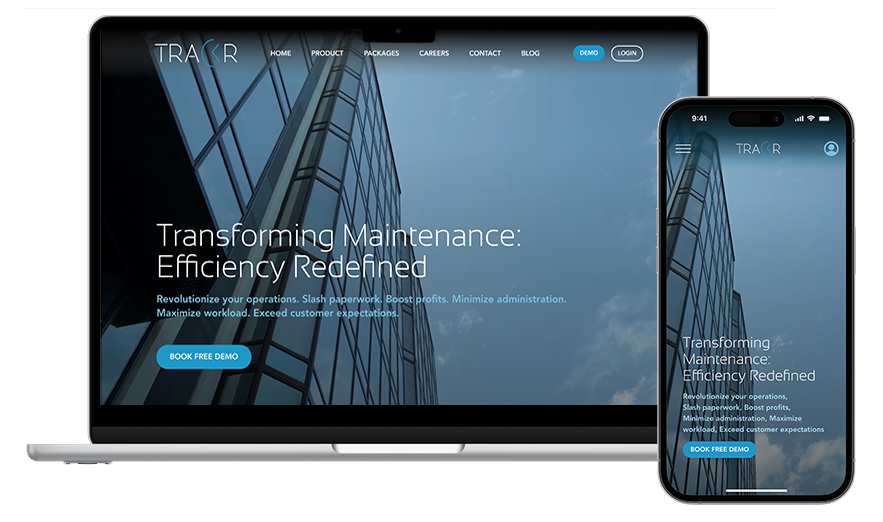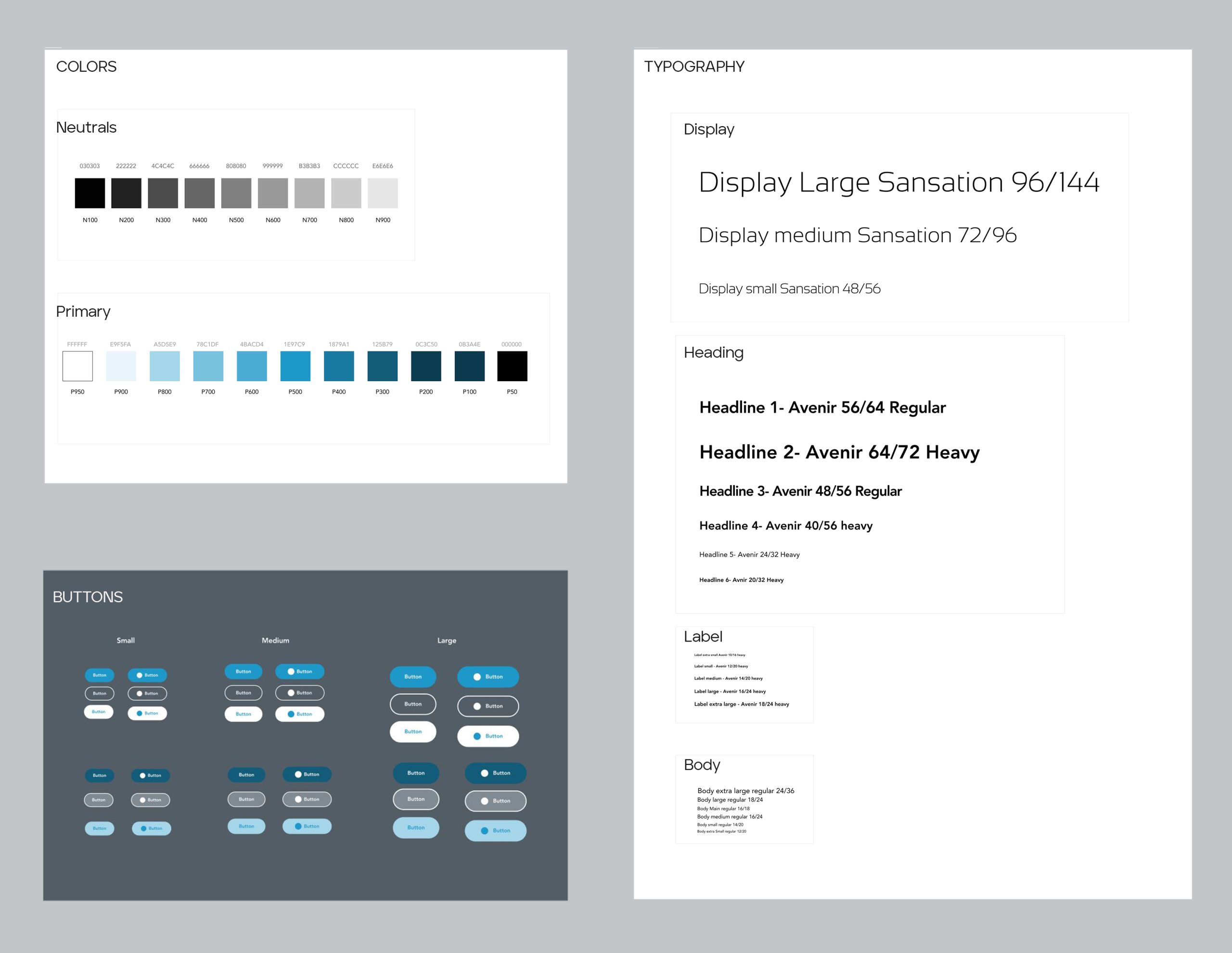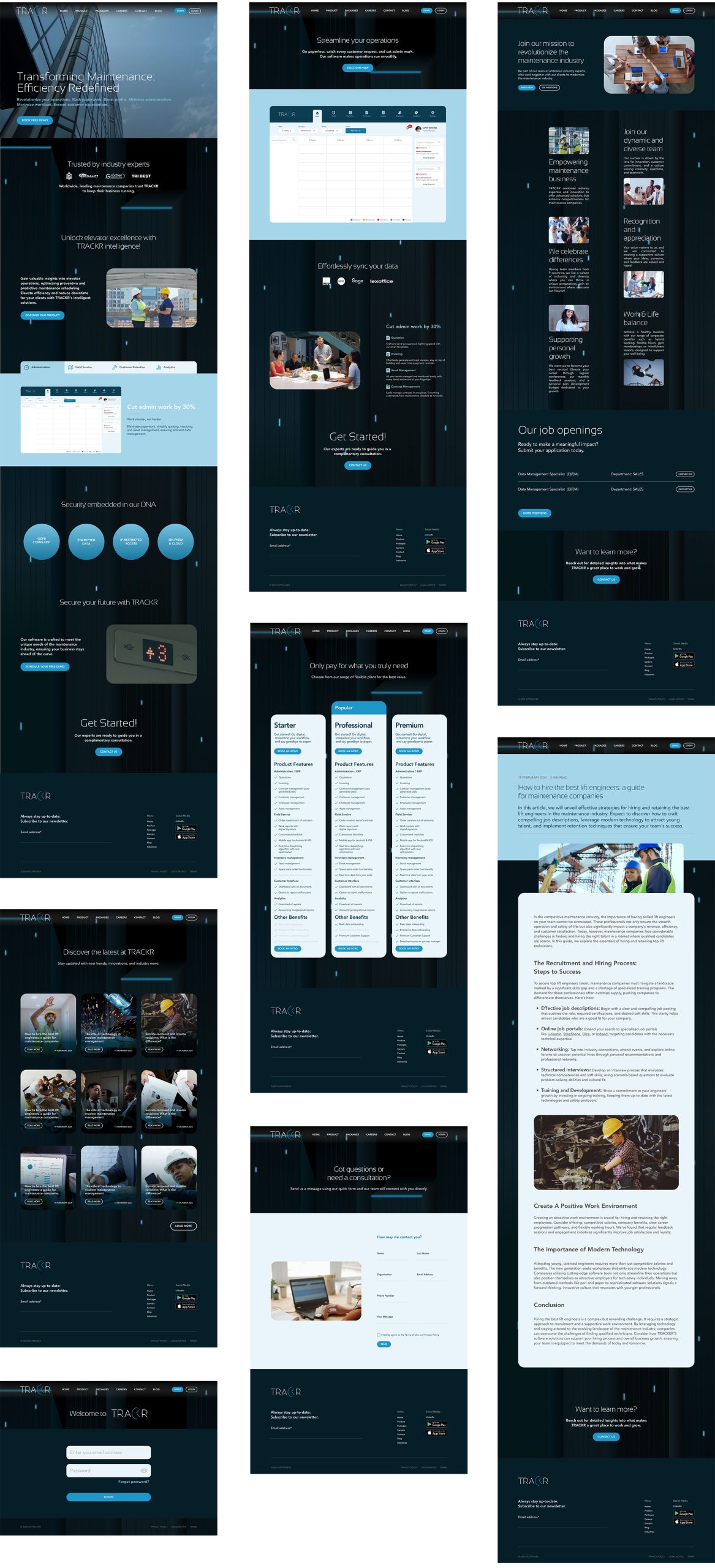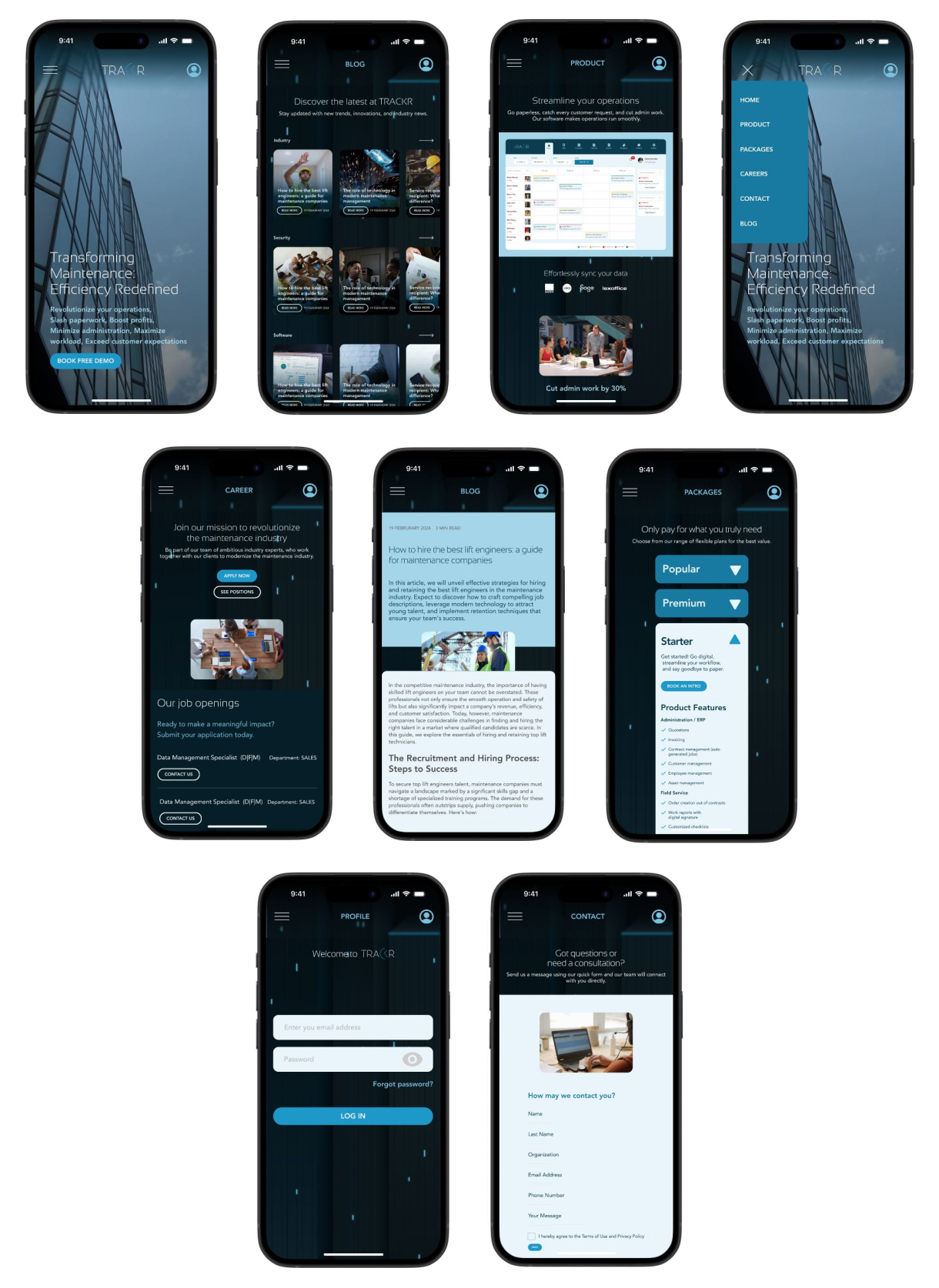UI Design Case Study:
TRACKR Website
This project is a design proposal for TRACKR Company’s website and is inspired by the content and structure of Mainteny Company’s website.

Role: UI Designer
Duration: June 2024
Mentorship: This project was developed during my internship at Ideatolife Company, under the guidance of my supervisor, Mr. Bassel Hajj Hassan, who provided valuable insights and feedback throughout the execution of my ideas.

TRACKR Company provides elevator maintenance service software which optimizes business operations by reducing paperwork, boosting profit, minimizing human errors, and facilitating job creation.
The primary objective was to design a website with a user-friendly interface that stands out in the elevator maintenance industry. The design needed to be efficient and deeply connected with users through simple navigation and creating a satisfying experience.
Encouraging customers and employees to use TRACKR’s software and embrace this new method of communication for task assignments, employee and costumer management, etc., instead of the previous outdated paperwork systems.

I aimed to incorporate the familiar experience of riding an elevator into the website’s interactions. The goal was to bridge the gap between the real-world experience and the virtual interface, creating a sense of familiarity for users while introducing the new software.
Developed a consistent and cohesive design system, harmonious to the brand’s image, that integrates the elevator theme subtly and effectively.

Implemented engaging background animations featuring tall buildings with illuminated blocks moving up and down, mimicking elevator rides.
Incorporated the illusion of elevator doors opening when navigating between tabs, providing an engaging transition to different screens.
Created intuitive UI screens that enhance the user experience with smooth navigation and clear visual hierarchy.

You can check out the prototype by clicking here.

You can check out the prototype by clicking here.

This project taught me that consistency in design extends beyond the tangible elements defined in a design system. It can also include the intangible presence of feelings and experiences derived from users’ memories.